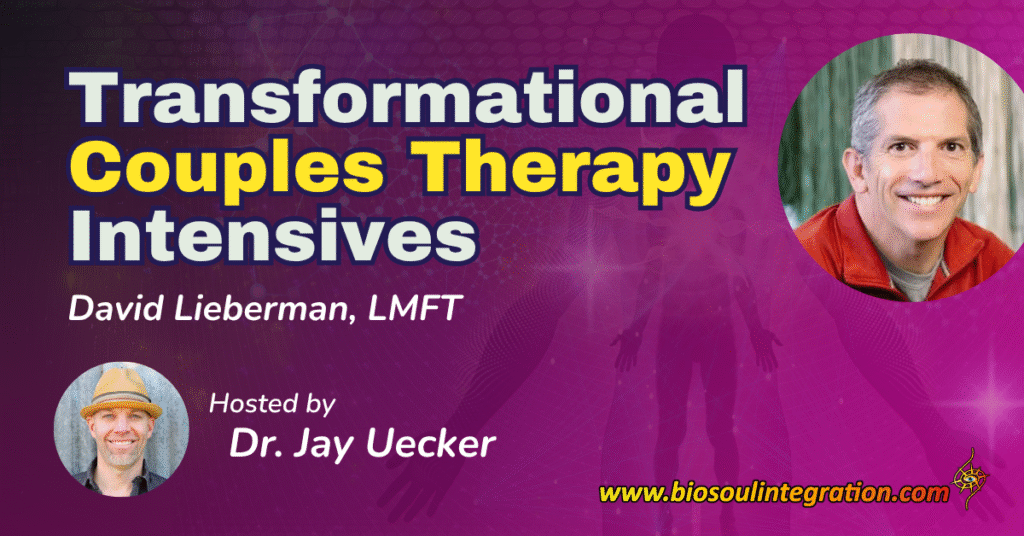
Therapy Intensives for Transformational Healing—interview with Boulder Couples Therapist, David Lieberman
The quality of our relationships determines the quality of our lives.
Esther Perel, psychotherpist, author and speaker
When Weekly Therapy Isn’t Enough
When couples are struggling, traditional weekly therapy sessions don’t always provide the breakthrough they need.
That’s where couples therapy intensives come in—concentrated sessions that can create transformation in days rather than months.
I sat down with Boulder family and couples therapist, David Lieberman, LMFT, to learn what makes intensive couples therapy so powerful and when it’s the right choice for struggling relationships.
This interview is part of the Boulder Healers Series from BioSoul Integration Center, featuring local therapists, coaches, and body-based practitioners in Boulder, CO.
If you’d like to be interviewed or learn more, get in touch through my website.
What Are Couples Therapy Intensives?
Here’s the video interview I did with David Lieberman:
If you prefer to listen to audio podcasts, the BioSoul Integration Podcast and this episode can be found wherever you listen to your audio podcasts:
Dr. Jay: So David, can you tell us what exactly is intensive couples therapy?
David: Yeah, absolutely. So intensive couples therapy, or couples therapy intensives as some people call them, are essentially a condensed, accelerated form of couples therapy where instead of coming in once a week for an hour, couples will come in for extended sessions over a shorter period of time.
So this could be, you know, a full day, it could be two days, it could be spread out over a weekend.
The idea is that you’re really immersing yourself in the therapeutic process rather than having that week in between where you might fall back into old patterns or lose momentum.
Dr. Jay: And how is that different from just having more regular sessions?
David: Yeah, it’s a great question. The difference is really in the depth and the continuity.
When you have that extended time together, you can get past the surface level stuff much faster.
In a typical weekly session, you might spend the first 15-20 minutes just catching up on the week, and by the time you really get into something deep, the session’s over.
With intensive couples therapy, we can stay with the difficult emotions, we can work through entire patterns in real time, and there’s less chance of avoidance because we’re right there in it together for hours at a time.
Who Benefits Most from Intensive Couples Therapy?

Dr. Jay: So who is this for? Like, what kind of couples would benefit from couples therapy intensives?
David: Really good question. I think it’s ideal for several types of couples.
First, couples in crisis—maybe there’s been an infidelity, maybe they’re on the brink of separation or divorce and they need something more intensive than weekly sessions.
Second, couples who have tried traditional therapy and feel like they’re spinning their wheels, not really making progress.
Third, couples who are committed to working on their relationship but have limited time—maybe they’re busy professionals or they have young kids and it’s hard to get away for weekly appointments.
And then there are couples who just want to do a deep dive before a major life transition, like getting married or having a baby.
Dr. Jay: What about people who are like, “We’re not in crisis, but we want to improve things”?
David: Absolutely, they can benefit too. You don’t have to wait until your relationship is in crisis to do intensive couples therapy.
In fact, I love working with couples who are being proactive. It’s kind of like, you know, you don’t wait until your car breaks down to do maintenance, right?
Some couples just want to deepen their connection, improve their communication, or work through some recurring patterns before they become bigger problems.
The Power of Immersion in Therapy Intensives

Dr. Jay: What actually happens in these sessions that makes them so effective?
David: So there’s a few things. One is that couples can’t escape or avoid the way they might in regular life.
When something uncomfortable comes up in a weekly session, people know that in 45 minutes they get to leave, right?
In a couples therapy intensive, we have the time to sit with that discomfort, work through it, and actually get to the other side. We can go deeper faster because we’re not starting over every week.
The other thing is that I can use multiple therapeutic approaches in one session.
So we might start with some Emotionally Focused Therapy to understand the attachment dynamics, then shift to some communication skills work, maybe do some internal family systems work if we need to address parts that are getting triggered.
It’s very fluid and responsive to what the couple needs in real time.
Dr. Jay: Can you give me an example of what that might look like with a real couple?
David: Sure. So let’s say a couple comes in and they’re fighting constantly about household responsibilities—who’s doing more, who’s pulling their weight, all of that.
In a weekly session, we might identify the pattern, maybe give them some tools to communicate better, and send them home.
Next week they come back and they’ve probably had the same fight again.
In intensive couples therapy, we can unpack that whole dynamic in one day.
We might discover that for one partner, it’s not really about the dishes—it’s about feeling unseen and unappreciated, which connects to their childhood experience of being the responsible one while their siblings got all the attention.
For the other partner, the nagging about chores triggers shame that goes back to being criticized by a parent.
We can work through those core wounds, help each person see the other’s experience with compassion, and then practice new ways of communicating about household stuff.
By the end of the day, they’ve got a completely different understanding of what’s really happening, and they’ve actually practiced new patterns together.
Breaking Through Resistance
Dr. Jay: One thing you mentioned earlier was about people not being able to avoid things. Can you talk more about that?
David: Yeah, so resistance is a huge part of couples work. I mean, change is hard, vulnerability is scary.
In traditional therapy, when something uncomfortable comes up, the session ends and people have a whole week to build their defenses back up.
Someone might agree to try something new, and then next week they come in and say, “Oh, I forgot,” or “It just didn’t feel right,” or whatever.
In couples therapy intensives, we’re working with the resistance in real time.
If someone’s shutting down or deflecting, I can address that immediately.
We can explore what’s happening, what they’re afraid of, and work through it rather than letting it derail the whole process.
There’s nowhere to hide, which sounds intense—and it is—but that’s also what makes it so effective.
Dr. Jay: Is that intimidating for people?
David: It can be, yeah. I’m always honest with couples that this is going to be emotionally demanding.
You can’t just show up and go through the motions.
But here’s the thing—if your relationship is really struggling, you’re already in pain.
The question is, do you want to be in that pain for months or years, or do you want to do something concentrated and intensive that’s going to be uncomfortable but could actually create real change?
Most couples, when you frame it that way, they’re ready to do the work.
The Structure of an Intensive

Dr. Jay: Walk me through what a typical intensive looks like. Like if a couple calls you up, what happens?
David: So first, I’ll do a consultation, usually with each person individually and then together as a couple.
I want to understand what’s going on, what they’re hoping to get out of intensive couples therapy, and make sure it’s a good fit.
If we decide to move forward, we’ll schedule the intensive itself.
The actual structure can vary. Sometimes it’s two full days, like 9 to 5 or 10 to 6.
Sometimes it’s three shorter days. It depends on what the couple needs and what makes sense for their schedule.
We’ll take breaks throughout—I’m not trying to torture people.
We might pause for lunch, take a walk, do some individual reflection time. It’s intense but it’s also very humane, you know?
Dr. Jay: And what therapeutic approaches do you use?
David: I pull from a lot of different modalities depending on what the couple needs.
Emotionally Focused Therapy is a big one for me—that’s really about understanding attachment patterns and creating secure bonding moments.
I might use some Gottman Method stuff for communication skills. If there’s trauma, we might do some EMDR or somatic work.
I’m also trained in Internal Family Systems, which can be really helpful when parts of people are getting triggered.
The beauty of couples therapy intensives is that I have the time to be really flexible and responsive.
Dr. Jay: What happens after the intensive is over?
David: Follow-up is really important. I typically schedule check-ins at one week, one month, and three months after the intensive.
These aren’t necessarily full therapy sessions, but they give couples a chance to share how things are going, troubleshoot any challenges, and make sure they’re staying on track with the changes they committed to.
Some couples will also transition into less frequent ongoing therapy, like meeting monthly instead of weekly, just to maintain the progress.
Is Intensive Couples Therapy Right for Everyone?
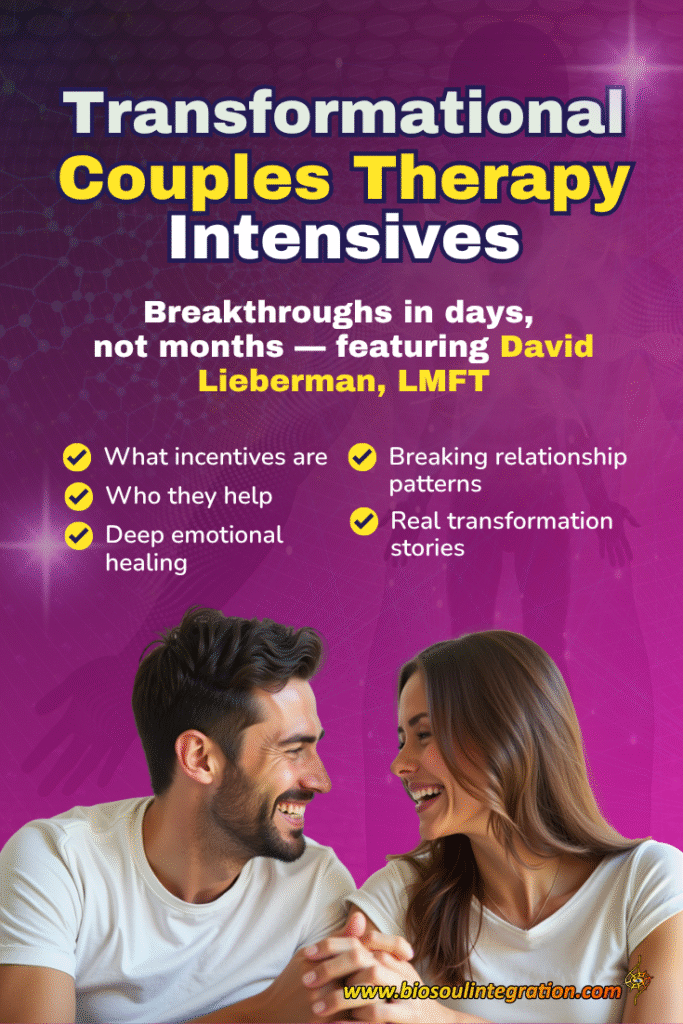
Dr. Jay: Are there situations where you would say intensive couples therapy is not the right choice?
David: Definitely. If there’s active domestic violence happening, that needs to be addressed first in a different context.
Safety is the priority. If one or both partners are actively abusing substances, they need to deal with that before we can do effective couples work.
If someone’s in an active affair and they’re not willing to commit to the relationship, then we’re kind of wasting everyone’s time.
And honestly, if both people aren’t really willing to be vulnerable and do the work, it’s not going to be effective.
I need both partners to show up and be willing to look at themselves, not just point fingers at each other.
That’s why the consultation phase is so important—I’m assessing whether people are ready for this.
Dr. Jay: What about the cost? I imagine it’s pretty expensive.
David: It is an investment, for sure. Depending on the length and the therapist, couples therapy intensives might run anywhere from $3,000 to $10,000 or more.
That said, when you think about months or years of weekly therapy at a couple hundred dollars a session, it can actually be more cost-effective in the long run.
Plus, there’s the emotional cost of staying stuck, right?
But I totally understand that not everyone has that kind of money available, and that’s a real consideration for couples.
The Transformation Possible with Therapy Intensives
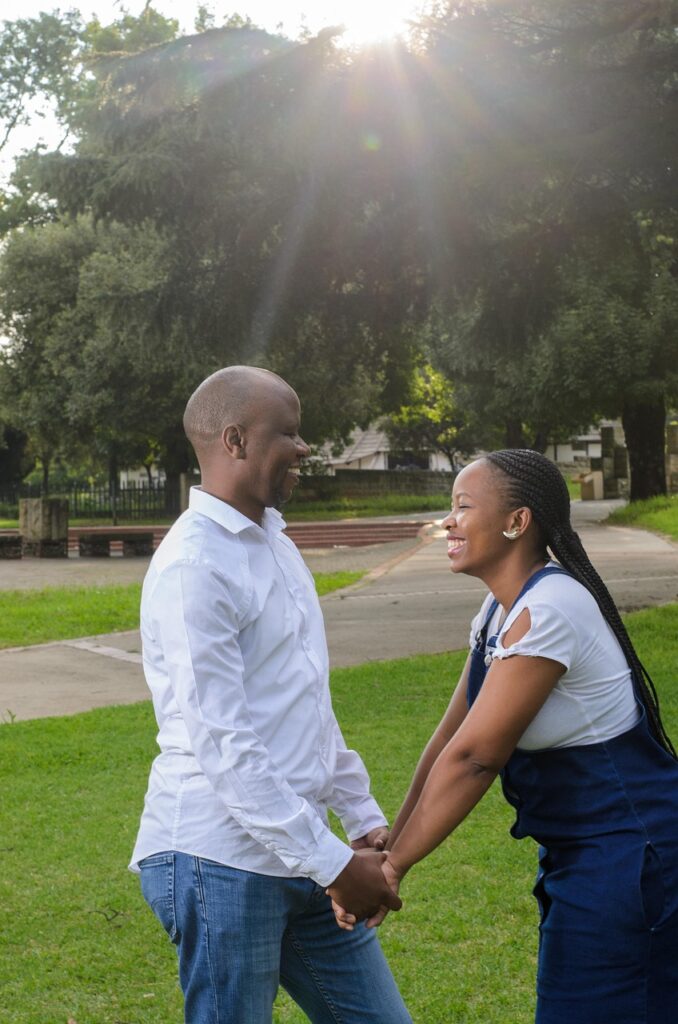
Dr. Jay: What do you find most rewarding about doing intensive couples therapy?
David: Man, it’s really the breakthrough moments.
Seeing a couple come in on day one and they can barely look at each other, they’re so angry or hurt or disconnected.
And then by the end of day two, something has shifted.
They’re softer with each other, they’re holding hands, they’re actually seeing each other as human again instead of as the enemy.
That’s incredibly moving to witness.
Not every intensive ends with fireworks and everything’s perfect, but when couples are really willing to do the work, the transformation can be profound.
I’ve had couples reach out months later and say, “That intensive saved our marriage,” or “We finally understand each other in a way we never have before.”
That never gets old for me.
Dr. Jay: Any final words for couples who might be considering this?
David: I would say if you’re even thinking about it, if you’re looking into couples therapy intensives, that tells me you know something needs to change.
Don’t wait until things are so broken that repair feels impossible.
The earlier you intervene, the better. And if you’re on the fence, find a therapist who specializes in intensive couples therapy, have a consultation, and see if it feels like the right fit for you.
The worst thing you can do is nothing and hope things magically get better.
They usually don’t.
David Lieberman, LMFT
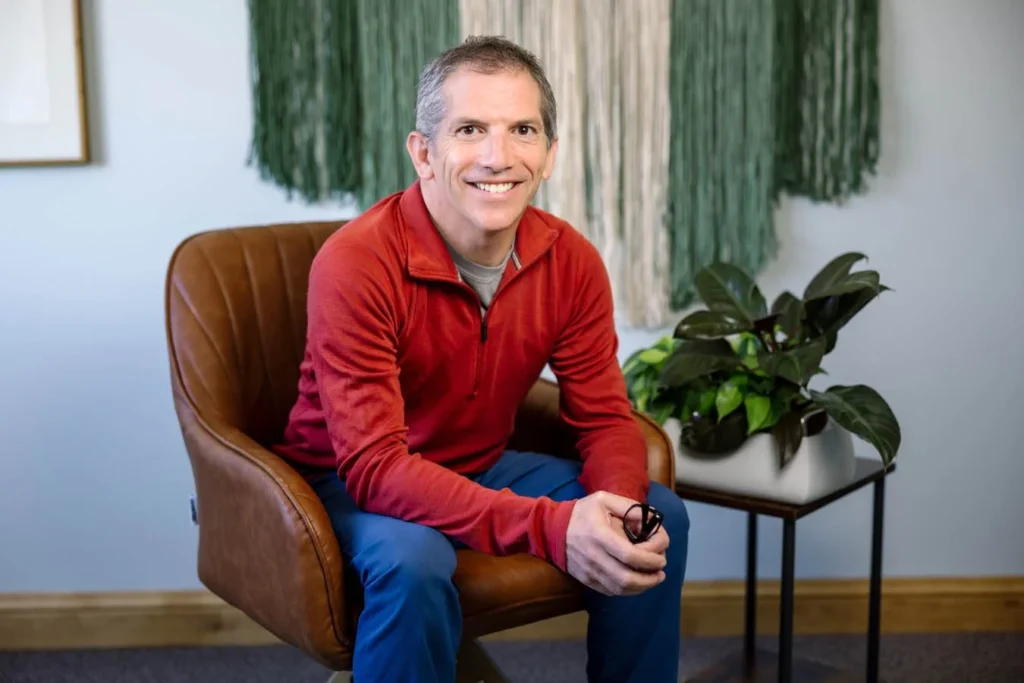
I want to thank David Lieberman, LMFT, for sharing his wisdom and perspective in this interview.
For couples or families interested in transformational, experiential therapy intensives, you can learn more about David’s work at www.peoplenotproblems.com.
David specializes in helping partners move through betrayal, rebuild trust, and explore authentic connection through a sex-positive, somatic approach to healing.
To schedule a complimentary consultation or learn about upcoming intensive opportunities, visit his website for details.
Your Guide to Transformation
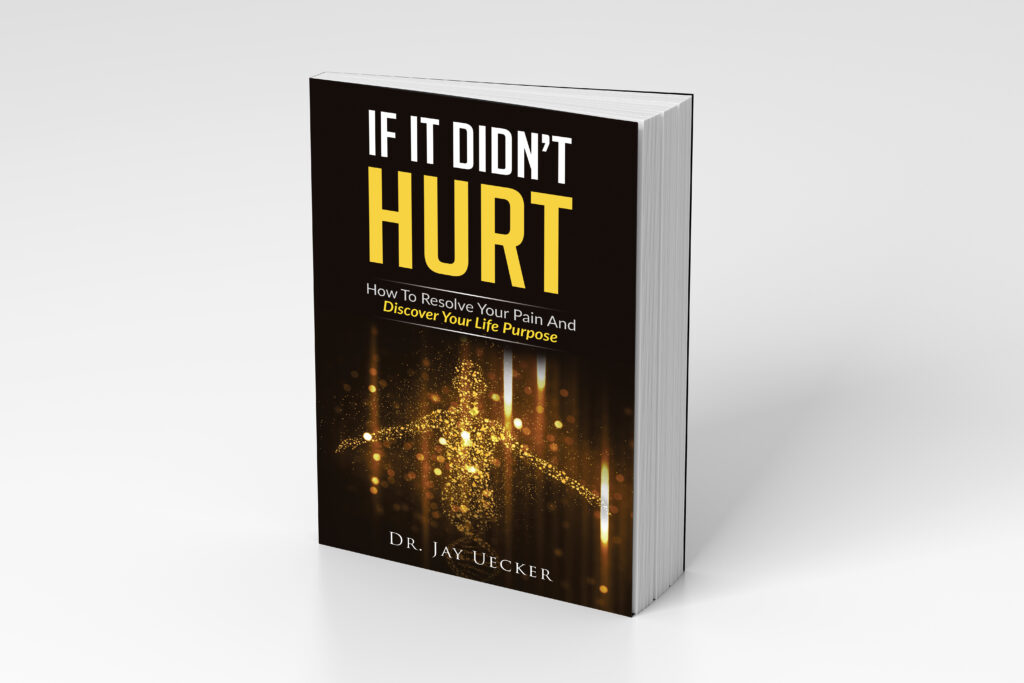
Like David, my own work is ultimately about transformation—helping people embody more of who they truly are so they can bring their authentic gifts into the world.
While I don’t use the term transformational therapy intensives, the heart of what I do is very similar: guiding people through the inner process of becoming whole.
If you’d like to explore that process for yourself, you can click the link to get a free PDF copy of my book, If It Didn’t Hurt: How to Resolve Your Pain and Discover Your Life Purpose.
I look forward to helping you express more life,
Dr. Jay
About the Author Dr. Jay Uecker
Dr. Jay Uecker is the founder of the BioSoul Integration Center near Boulder, Colorado where he's been practicing for over 20 years. He’s an author, chiropractor, healer, and online soul integration coach who weaves Network Spinal Analysis, intuitive Parts Work, Brainspotting, SomatoRespiratory Integration, and body-centered awareness practices into his own technique, which he calls BioSoul Integration. His work helps people release unconscious resistance stored in the nervous system so they can embody their soul’s gifts and express their purpose more fully. Dr. Jay offers group healing sessions and one-on-one care, both in-person and online. He also offers a self-paced online course and a growing collection of transformational books. For a limited time, claim your FREE copy of If It Didn't Hurt: How to Resolve Your Pain and Discover Your Life Purpose.
Related Posts
What Is Integral Leadership, Anyway? With Embodied Leadership Coach, Anne-Marie Marron From Boulder, CO
Embodied Living With Past Trauma: Interview With Women’s Empowerment Coach, Alison Rothman, From Boulder, CO
The Soul Integration Process And Pain’s Important Role
How Transformational Life Coaching Saved Her Life, Interview With Women’s Life Coach, Alejandra Duenas From Broomfield, CO
What Is Network Spinal Analysis? Interview With Amanda Love, Network Chiropractor In Boulder, CO
Network Spinal Analysis: Does It Work? Interview With Network Chiropractor, Shea Elizabeth From Lafayette, CO
